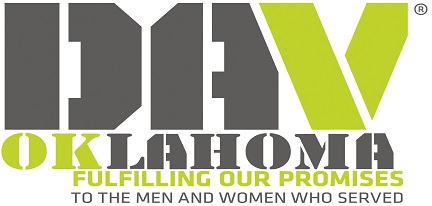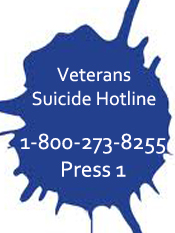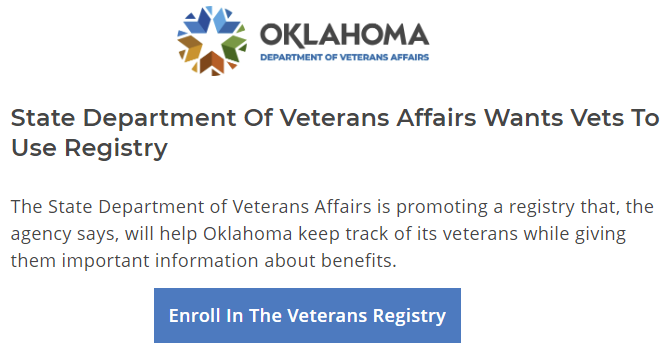On March 9, the VA announced it is now able to fund care for all veterans with hepatitis C for FY 2016, regardless of the stage of the patient’s liver disease. The move follows increased funding from Congress, along with reduced drug prices. “We’re honored to be able to expand treatment for veterans who are afflicted with hepatitis C,” said VA Under Secretary for Health Dr. David Shulkin. “To manage limited resources previously, we established treatment priority for the sickest patients. Additionally, if veterans are currently waiting on an appointment for community care through the Choice Program, they can now turn to their local VA facility for this treatment or can elect to continue to receive treatment through the Choice Program.” VA expects, with the expansion, many more veterans will be started on hepatitis C treatment this fiscal year.
Veterans Omnibus Bill
Lawmakers could be headed toward a veterans omnibus bill covering a host of health, education and employment issues after House members passed a package of nine veterans-themed measures the evening of 9 FEB. The flurry of legislation came after a day of debate and discussion about veterans issues on the House floor. All of the measures were passed by voice vote without objection, but will need Senate action and the president’s signature before they can become law.
House Majority Leader Kevin McCarthy (R-CA) said the moves were a needed push to help “our retired servicemen and women who have been neglected by a broken Department of Veterans Affairs.” He promised more focus on the issues in months to come. “It has been several years since the corruption and dysfunction at the VA was exposed, and quite frankly, it is appalling that we must continue to pass bills to fix the countless problems that have been ignored,” he said. “We continue to hear that change at the VA is on the way, but as the bureaucracy remains unchanged, our veterans continue to wait for care and benefits.” House Veterans’ Affairs Committee Chairman Jeff Miller (R-FL) said the bills together help “rein in the incompetence that permeates VA’s construction efforts, end the egregious taxpayer abuse some unscrupulous and greedy schools are committing on a daily basis, and most importantly, honor our veterans while improving and expanding the benefits they have earned.”
Gulf War Syndrome
A scientific panel has concluded that the Veterans Affairs Department should stop searching for links between environmental exposures in the 1991 Persian Gulf War and veterans’ illnesses and instead focus on monitoring and treating those who have health problems related to deploying 25 years ago. In a report released 11 FEB, Institute of Medicine researchers said Gulf War veterans are at increased risk for developing some physical and psychological health conditions like post-traumatic stress, anxiety, Gulf War illness and chronic fatigue syndrome, but other diseases
like cancer, respiratory illnesses and most neurodegenerative conditions do not appear to occur at higher rates in these former troops. Without concrete information on each Gulf War veteran’s exposure and the unlikely prospect of ever having the data, VA should focus instead on following this group as members age and treat illnesses that develop, panelists said. According to the report, there also is “limited but suggestive” evidence that amyotrophic lateral sclerosis, or ALS,
fibromalygia and chronic pain and self-reported sexual dysfunction are related to Gulf War deployment. But it found little or no evidence that cancer, skin conditions, birth defects, musculoskeletal system diseases, multiple sclerosis and other illnesses were related. “In spite of a thorough literature search, [this] committee found little evidence to warrant changes to the conclusions made by [a previous IOM] committee regarding the strength of the association between deployment to the Gulf War and adverse health outcomes,”
National Nonprofit Newsletter
For DAV Departments and Chapters
Volume 8, No. 1 Winter 2016
FEDERAL CHARTERS: WHAT DO THEY MEAN?
Part One
DAV is one of a handful (roughly 100) of organizations
that have been granted a “federal” or “Congressional”
charter. This concept is somewhat puzzling to the
public and sometimes even mystifies government
officials. In this and the next issue of the Nonprofit
Advisor, we will clarify this somewhat arcane concept.
Who came up with the idea of a “federal charter”?
The federal charter as it exists in the United States
appears to be a direct descendant of the so-called
European “royal charter.” The earliest known charters
date back to the medieval period (i.e., 800 A.D. – 1400
A.D.) and were used by monarchs to create towns and
important institutions such as colleges and universities.
Royal charters gained special popularity in Great Britain
and Scotland. In those countries, the medieval uses of
the charter were somewhat expanded. Some charters
were granted simply for the creation of necessary
institutions, such as the British East India Company.
However, some were granted to honor existing
institutions and to acknowledge their “pre-eminence,
stability and permanence.”
The varied uses of the royal charter made their way into
the practices of the earliest American colonies. One of
the first charters issued on our shores dates back to
1639 and was promulgated by an “Act of the Great and
General Court of the Massachusetts Bay Colony.” That
charter created Harvard College, now Harvard
University.
What is the purpose of the “federal” or
“Congressional” charter as we know it?
The practice of the chartering by Congress of patriotic,
charitable and other organizations of civic value was
most prominent in the middle third of the last century.
Typically, the chartered organizations originally existed
as state corporations (or unincorporated associations)
and subsequently sought the Congressional recognition.
This was the case, for example, with DAV. Founded a
dozen years before the grant of its federal charter in
1932, the organization had been incorporated in Ohio.
That incorporation was superseded by the
Congressional enactment, which was signed into law by
President Herbert Hoover on June 17, 1932. It has been
amended on a few occasions over the years, but, in
essence, remains very much as originally enacted.
There is no “one” purpose for a Congressional charter.
Given the early recipients of the charters (the major
veterans organizations, Boy Scouts, Girl Scouts, Little
League Baseball), it is clear that Congress intended to
reserve the status for important and unique entities.
Indeed, in 1965, President Johnson vetoed a bill to grant
a charter to a civic affairs group and complained that
“Federal charters should be granted, if at all, only on a
selective basis and . . . they should meet some national
interest standard.” Unfortunately, by this time, the
significance of a charter had been somewhat diluted.
Organizations were seeking charters in part because of
the Congressional “approval” that they seemed to
connote. Such approval could often be translated, even
indirectly, into a financial benefit.
Five years later, the House and Senate agreed to a joint
statement of policy under which federal charters were
to be reserved to organizations “organized and
operated for the primary purpose of conducting
activities which are of national scope and responsive to
a national need.” The result of this has been a
dramatic decline in the number of newly-issued
charters.
How and why would a charter ever be amended?
It is difficult to amend a federal charter. It requires –
literally – an Act of Congress. Typically, an amendment
is made so that the charter more accurately reflects the
character of the organization. For example, as originally
chartered in 1932, DAV was named “Disabled American
Veterans of the World War.” Geopolitical
circumstances changed rapidly in the next decade, so
that in 1942 President Franklin Roosevelt signed into
law an amendment to the DAV charter changing the
name of the organization to “Disabled American
Veterans.”
What about the current amendment to DAV’s charter?
The current (proposed) amendment to the DAV charter
is intended to reflect clearly two undeniable facts. One
is that the organization’s charitable activities now dwarf
everything else it does. The other is that DAV has long
been the primary institution educating the American
people about the sacrifices and needs of disabled
veterans.
Is there, then, no legal significance to the charter?
The question of federal chartering has given rise to
numerous legal issues over the years. Some of those
will be explored in the next edition of our newsletter.
Nonprofit Advisor is prepared by the Office of the DAV’s General Counsel and is published quarterly for the informational use
of DAV Departments and Chapters. This newsletter is not intended to replace legal advice that may be required to address
individual situations.
VA Boss: Political Challenges Tougher Than Expected:
Secretary McDonald, now in his last year as secretary of Veterans Affairs as President Obama wraps up his administration, expected that there would be challenges when he took the job.
He assumed the position 18 months ago amidst a major scandal involving long patient wait times and veterans dying while waiting for appointments. At the same time, there was the widely known backlog of disability claims applications — with some veterans waiting years for a decision — and persistent delays and cost overruns with a major VA medical center in Colorado.
What the former head of international consumer giant Procter & Gamble, one-time airborne soldier and West Point grad did not expect was unrelenting political attacks from Congress and elsewhere — including, he believes, a veterans group backed by billionaire brothers Charles and David Koch.
“I think the biggest surprise was the politics,” he told Military.com during a recent interview at the VA Medical Center in Boston’s Jamaica Plain neighborhood. “Remember, I was confirmed 97 to zero. I thought I would focus on just getting better care for veterans, so the politics has been surprising to me. I don’t like politics, I’m not going to be a politician, I’m not running for anything.”
But McDonald’s dislike for politics and lack of political ambition, coupled with a comfortable, stable life made possible by a successful career with P&G, provides him “the freedom to do what is right” regardless of whatever pressure is exerted, he said.
“I don’t need the money. I don’t need the position,” he said. “I’m sacrificing, in a sense, to do this, but it’s not a sacrifice because it’s for my brothers and sisters who served. I’ve got no other agenda.”
If you have heard Secretary McDonald speak he always stetes, “if you have a problem with the VA that cannot be resolved through proper channels, contact me”. I can tell you from personal experience that Secretary McDonald will respond if the matter is significant.
Service Members Publicly Charged, but Privately Cleared:
When they are accused of crimes, the names of service members are made public — but kept secret when they are acquitted. For the same reason, citizens are named when accused of crimes — it’s a check against government forces being able to secretly prosecute enemies on trumped-up charges. There is a key public accountability element to transparency, one that augers against overcharging and prosecutorial overreach. Certainly, not naming the acquitted softens the sting of prosecutorial failure.
The misguided attempt to protect those proven not guilty in fact not only embraces anti-democratic practices, it is a harmful disservice to the acquitted. Often the charges against them, typically felonies, are reported on the Internet, and that is the only reference to their alleged activities should an employer, lending agency or other party search their names. That could have a devastating effect on their personal lives — an ironic punishment for being cleared of wrongdoing
New VA Apps for Women:
A guide to VA’s new mobile apps for women veterans is available at
https://mobile.va.gov/app/caring-4-women-veterans
Post Traumatic Stres Disorder (PTSD):
Mostly everyone is aware of PTSD and that some of our military who served in combat have PTSD but, let’s be honest, we often are at a loss as to how to help someone with PTSD. Following are some guidelines for your information:
The following is co-authored by Rita Nakashima Brock, Ph. D. and Dr. William Gibson:
If you have a friend or family member you know or believe has PTSD, here are some ways you can help them:
Be aware that PTSD can leave sufferers believing the world is fundamentally unsafe and that they can trust almost no one. They behave out of character. PTSD alters people in significant ways that affect behavior. In addition to distressing symptoms such as nightmares, flashbacks, loss of memory, insomnia, hyper-vigilance, and intrusive memories or images, they often feel emotionally numb and socially isolated, cut off from others and from their own feelings. And they may try to self-medicate with alcohol or drugs or be self-destructive.
As much as you can, do not allow your worry or guilt to co-opt their struggle. You may feel at a loss for how to respond. You may even blame yourself for the sufferer’s experiences or reactions. However, the situation is about the other person’s experience and his or her struggle to make sense of it, not about you, about whether you’re a good partner or parent or friend, or about anything you have done.
You may also feel uncomfortable talking to the person about his or her experiences. Maybe you find yourself saying, well, it wasn’t that bad, or other people had it worse. Maybe you interrupt or change the subject. While you may think you are protecting yourself and the person from re-experiencing the horrific situation, you are likely sending a message that the PTSD sufferer cannot feel safe discussing all aspects of him or herself with you–and at worst, you may add to their trauma by underscoring their feelings of separation and alienation.
It helps to remember that the symptoms that constitute PTSD arise from a normal human defense system triggered by traumatizing experiences. These symptoms are not a sign of character weakness or mental defect.
From the VA Secretary
Statement from VA Secretary Robert A. McDonald
On the Need to Reform the Veterans’ Appeals Process
Last week I presented to the Senate Veterans Affairs’ Committee the way forward for the important transformation of the Department of Veterans Affairs—what we call MyVA. We aim to improve our care and services to all Veterans. In order to do that, I made clear that we would need Congress’ help in legislating a fair, streamlined, and comprehensive process for new appeals, as well as providing much needed resources to address the current pending inventory of appeals. I look forward to working with all stakeholders to design an appeals process that better serves Veterans.
VA will need legislation and resourcing to put in place a simplified appeals process that enables the Department to resolve the majority of our appeals in a reasonable timeframe for Veterans.
The appeals process we currently have set in law is failing Veterans—and taxpayers. Decades worth of law and policy layered upon each other have become cumbersome and clunky. Most importantly, it is now so antiquated that it no longer serves Veterans well as many find it confusing and are frustrated by the endless process and the associated length of time it can take to get an answer.
In 2012, VA made the commitment to end the disability claims backlog. It took too long for Veterans to receive a decision on their claim. Our commitment has resulted in transformational change. The disability claims backlog has been driven down to fewer than 82,000, from a peak of 611,000 in March 2013. At the same time, we have fully transitioned to a paperless, electronic processing system, eliminating 5,000 tons of paper a year. Last year, we decided 1.4 million disability compensation and pension claims for Veterans and survivors – the highest in VA history for a single year and that comes on the heels on two previous record-breaking years of productivity.
As VA has become more efficient in claims processing, the volume of appeals has increased proportionately. While it remains true that 11-12 percent of Veterans who receive a disability rating file for an appeal, more processed claims means more appeals. This is VA’s next challenge.
The current pending inventory of appeals stands at more than 440,000 and is estimated to grow rapidly. Right now, Veterans who file an appeal wait an average of three years for appeals to be resolved by the Veterans Benefits Administration (VBA), and an average of five years for appeals that reach the Board of Veterans Appeals’ (Board), with thousands lasting much longer. That’s unacceptable.
We are applying lessons learned from the transformative change that allowed us to reduce the disability claims backlog. Like our work with the claims processing, the appeals process will need changes in people, process and technology. Upgraded technology will make changes to our mail system and paper records, and incorporate some efficiencies in the way appeals are managed and processed. Retraining and increased staff will be necessary. But they will not be enough. We must also look critically at the many steps in the current complex appeals process used by VA and by Veterans and their advocates to design a process that better serves Veterans.
A new appeals process would provide Veterans with the timely and fair appeals decisions they deserve, and adequate resourcing that permits the VBA and the Board to address the growing inventory of appeals.




